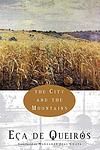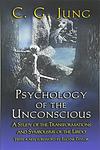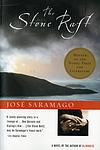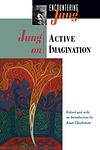The Greatest Portuguese, Swiss Books of All Time
Click to learn how this list is calculated.
This list represents a comprehensive and trusted collection of the greatest books. Developed through a specialized algorithm, it brings together 305 'best of' book lists to form a definitive guide to the world's most acclaimed books. For those interested in how these books are chosen, additional details can be found on the rankings page.
Genres
Countries
Date Range
Reading Statistics
Click the button below to see how many of these books you've read!
Download
If you're interested in downloading this list as a CSV file for use in a spreadsheet application, you can easily do so by clicking the button below. Please note that to ensure a manageable file size and faster download, the CSV will include details for only the first 500 books.
Download-
26. Fado Alexandrino by António Lobo Antunes
"Fado Alexandrino" is a complex narrative that follows the lives of four Portuguese men who meet at a dinner in Lisbon to commemorate their return from the colonial war in Mozambique ten years prior. Each man, representing different social classes, recounts his life before, during, and after the war, revealing their personal struggles and the impact of the war on their lives. The novel also reflects the political and social changes in Portugal from the dictatorship era to the revolution and its aftermath.
The 3038th Greatest Book of All Time -
27. Mars by Fritz Zorn
"Mars" is a poignant autobiographical account of a young man's life and his battle with terminal cancer. The narrative delves into the author's affluent yet emotionally barren upbringing in a Swiss suburb, which he refers to as "Mars," symbolizing its cold and alienating environment. The book is a critique of his repressive bourgeois society, which he believes contributed to his psychological and physical illness. Through introspective and often angry prose, the author explores themes of alienation, the search for identity, and the impact of societal norms on individual well-being. His struggle is not only against the disease but also against the cultural and familial constraints that stifled his emotional development.
The 3165th Greatest Book of All Time -
28. Grid Systems In Graphic Design by Josef Müller-Brockmann
This book is a seminal guide to graphic design and typographic composition, focusing on the use of grid systems as a foundational tool for ensuring visual coherence and hierarchy across various design projects. It provides designers with a methodical approach to organizing text and images in a clean, logical, and aesthetically pleasing manner. Through systematic arrangement, the grid serves as an essential framework that can be applied to a wide range of design work, from print media to digital interfaces. The book delves into the principles, applications, and benefits of grid systems, offering practical advice, examples, and clear illustrations to help designers harness the power of grids to create effective, impactful visual communications.
The 3172nd Greatest Book of All Time -
29. The City And The Mountains by Eça de Queirós
This novel juxtaposes the bustling, superficial life of the city with the serene, authentic existence in the countryside. Through the eyes of its protagonist, who transitions from a jaded urbanite to finding solace and purpose in the rural landscapes of his homeland, the narrative explores themes of materialism, the value of simplicity, and the quest for genuine happiness. The author masterfully contrasts the decadent Parisian society with the pastoral beauty and traditional values of Portugal, critiquing the hollow pursuits of the elite and celebrating the unpretentious, vibrant life connected to nature.
The 3221st Greatest Book of All Time -
30. Signs Of Fire by Jorge de Sena
"Signs of Fire" is a historical novel set against the backdrop of the Spanish Civil War and the onset of World War II, exploring the coming-of-age of a young Portuguese man. The protagonist, caught between the expectations of his bourgeois family and his own political awakening, grapples with the tumultuous events of the era, his personal relationships, and his burgeoning intellectual and ideological convictions. As he navigates love, friendship, and the struggle for meaning in a world on the brink of chaos, the novel delves into themes of identity, resistance, and the impact of historical forces on individual lives.
The 3241st Greatest Book of All Time -
31. The History of the Siege of Lisbon by José Saramago
This narrative revolves around a proofreader named Raimundo Silva, who, while working on a historical text about the Siege of Lisbon, decides to alter history by adding a single word to the text, turning the factual account into a fictional one. This act of rebellion leads him into a relationship with his boss, Maria Sara, and together they explore the consequences of questioning historical facts and narratives. The story also delves into the power of language and storytelling, and the blurred lines between history and fiction.
The 3435th Greatest Book of All Time -
32. Nos Matamos O Cão Tinhoso by Bernardo Honwana
"Nos Matamos O Cão Tinhoso" is a collection of short stories that vividly depicts the harsh reality of life in Mozambique during the colonial era. Through the eyes of young protagonists, the book explores themes of racism, poverty, and the struggle for identity and freedom. With its powerful narratives and evocative language, the stories offer a poignant reflection on the social and political challenges faced by the people of Mozambique.
The 3802nd Greatest Book of All Time -
33. The Return Of The Caravels by António Lobo Antunes
In this novel, the ghosts of Portugal's colonial past return to haunt the present, as the caravels from the age of exploration sail back into the Tagus River, bringing with them the historical figures from the 15th and 16th centuries. The narrative weaves together the lives of these returned explorers with those of contemporary Lisbon's denizens, blurring the lines between past and present. Through a series of interconnected stories, the book explores themes of identity, nostalgia, and the complex legacy of colonialism, as characters grapple with the dissolution of the Portuguese empire and the reintegration of its former colonies, reflecting on the impact of history on individual lives and national consciousness.
The 4121st Greatest Book of All Time -
34. Judgement and Reasoning in the Child by Jean Piaget
This book is a seminal work in the field of child psychology, exploring the ways in which children develop their cognitive abilities and reasoning skills. The author delves into the mental processes of children, focusing on how they form judgments, understand cause and effect, and develop logical thinking. The book also discusses the stages of cognitive development, highlighting the shift from intuitive to logical thinking. This influential work has greatly contributed to our understanding of child development and education.
The 4162nd Greatest Book of All Time -
35. Psychology of the Unconscious by Carl Jung
"Psychology of the Unconscious" is a pioneering work that explores the complex landscape of the human unconscious, introducing theories that would later become central to understanding personality and human psychology. The book delves into the idea of the collective unconscious, archetypes, and the process of individuation. It further discusses the role of dreams, myths, and symbols in understanding and interpreting the unconscious mind. The author uses case studies and examples from various cultures to support his theories, offering a comprehensive view of the human psyche.
The 4162nd Greatest Book of All Time -
36. Treaty Of The Soul's Passions by António Lobo Antunes
"Treaty of the Soul's Passions" is a profound exploration of human emotions and the complexities of the inner self. Through a series of interconnected stories and reflections, the narrative delves into the depths of love, despair, joy, and suffering, painting a vivid picture of the human condition. The author masterfully weaves a tapestry of characters and experiences, each revealing different facets of the soul's journey through life. With poetic language and rich psychological insight, the book invites readers to confront their own passions and question the nature of existence itself.
The 4468th Greatest Book of All Time -
37. The Feeling Of What Happens by Antonio Damasio
This book delves into the complex interplay between emotion, consciousness, and the human brain, offering a groundbreaking perspective on how our feelings shape our experiences of the world. The author, a renowned neuroscientist, explores the biological roots of consciousness and argues that our emotions are a crucial component of the self, playing a fundamental role in the way we perceive and navigate our surroundings. Through a combination of scientific research and philosophical inquiry, the text provides a compelling examination of the essence of human awareness, suggesting that the feeling of what happens in our minds is central to our identity and understanding of life.
The 4554th Greatest Book of All Time -
38. Man and His Symbols by Carl Jung
This book is a comprehensive introduction to the world of depth psychology, exploring the significance of dreams, art, and symbols in everyday life. The author and his colleagues delve into the unconscious mind, discussing its influence on our thoughts, behaviors, and experiences. The book emphasizes the importance of understanding and interpreting symbols as a means to gain insights into our unconscious motivations, fears, and desires. It also discusses the role of archetypes and collective unconscious in shaping human behavior and culture.
The 4699th Greatest Book of All Time -
39. Karingana Ua Karingana by José Craveirinha
"Karingana Ua Karingana" is a collection of poetry that delves into the rich cultural heritage and history of Mozambique. Through vivid and evocative imagery, the author explores themes of love, loss, and the struggles faced by the people of his country. Craveirinha's powerful and poignant verses offer a glimpse into the complexities of Mozambican society, while also celebrating its resilience and beauty.
The 4766th Greatest Book of All Time -
40. The Stone Raft by José Saramago
In this surreal exploration, the Iberian Peninsula breaks off from the rest of Europe and begins to drift across the Atlantic Ocean. As the governments and international community scramble to understand and respond to the phenomenon, five disparate individuals find themselves drawn together on a journey across the newly isolated landscape. Through their experiences and interactions, the narrative explores themes of identity, nationality, and the arbitrary nature of borders.
The 5036th Greatest Book of All Time -
41. Mensagem by Fernando Pessoa
"Mensagem" is a collection of 44 poems that pay homage to Portugal's heroic past, particularly its Age of Discovery. The work is divided into three parts: the first part focuses on the country's mythical origins, the second part celebrates the nation's maritime explorations and discoveries, and the third part reflects on the decline and future resurrection of Portugal. The author uses symbolic and allegorical language to convey his deep love for his homeland and his belief in its potential for greatness.
The 5047th Greatest Book of All Time -
42. The Illustrious House of Ramires by Eça de Queirós
The book follows the story of a young aristocrat from an ancient and noble family who is trying to write a historical novel about his heroic ancestors. However, he struggles with this task as he is constantly distracted by the mundane and frivolous happenings of his modern life. This satirical novel explores themes of national identity, history, and the contrast between the past and the present, all while providing a critique of 19th-century Portuguese society.
The 5091st Greatest Book of All Time -
43. Terra Sonâmbula by Mia Couto
"Terra Sonâmbula" by Mia Couto is a captivating novel set in war-torn Mozambique, where two individuals, a young boy and an old man, cross paths and embark on a journey that intertwines their lives. Through their encounters with other characters and their shared experiences, the book explores themes of loss, displacement, and the power of storytelling to heal and provide hope in the face of adversity. The lyrical prose and magical realism elements create a rich and evocative narrative that immerses readers in the complex and haunting world of post-colonial Mozambique.
The 5515th Greatest Book of All Time -
44. The Course In General Linguistics by Ferdinand de Saussure
"The Course in General Linguistics" is a foundational text in the field of linguistics that outlines the principles of structural linguistics and introduces key concepts such as the linguistic sign, the distinction between langue (language as a system) and parole (language as used in context), and the idea of synchronic versus diachronic analysis. The work emphasizes the arbitrary nature of the sign, which consists of the signifier (the form of the word or phrase) and the signified (the conceptual meaning). This book, compiled from notes by students from the lectures given by its author, has had a profound impact on the development of linguistic theory and has influenced various other disciplines, including anthropology, psychology, and literary theory.
The 5535th Greatest Book of All Time -
45. The Civilization Of The Renaissance In Italy by Jacob Burckhardt
"The Civilization of the Renaissance in Italy" is a seminal work that explores the Italian Renaissance from the 14th to the 16th century, a period marked by significant cultural, artistic, and political developments. The book delves into the revival of antiquity, the rise of individualism, and the secularization of society, examining how these factors influenced the transformation of various aspects of Italian life, including art, politics, and religion. Through a detailed analysis of the period, the author illustrates how the Renaissance represented a break from the traditions of the Middle Ages and laid the groundwork for the modern age.
The 5535th Greatest Book of All Time -
46. The Visit by Friedrich Dürrenmatt
The narrative revolves around the return of a wealthy woman to her impoverished hometown, where she offers the residents a disturbing proposition: a vast fortune in exchange for the life of the man who wronged her in her youth. As the townspeople's initial horror gives way to the corrupting influence of the promised wealth, moral integrity collapses, leading to a dark and cynical exploration of human nature, justice, and revenge. The story serves as a powerful commentary on the capacity for greed to erode community values and the price of justice in a world governed by materialism.
The 5757th Greatest Book of All Time -
47. Two Essays on Analytical Psychology by Carl Jung
This book contains two comprehensive essays that delve into the depths of analytical psychology. The first essay explores the role of the unconscious in the human psyche, discussing its influence on dreams, mythology, and mental illnesses. The second essay delves into the process of individuation, which is the psychological process of integrating the conscious and unconscious parts of the mind to achieve self-actualization. This work is a foundational text in understanding the theories and concepts of analytical psychology.
The 5758th Greatest Book of All Time -
48. Journey To Portugal by José Saramago
In this travelogue, the narrative unfolds as a journey through Portugal, guided by a keenly observant and contemplative traveler who delves into the heart of the country. As he traverses from north to south, the traveler reflects on the rich tapestry of landscapes, historical sites, and the everyday lives of the Portuguese people he encounters. The book is as much an exploration of the country's culture, history, and identity as it is a personal quest for understanding and connection, offering readers an intimate and lyrical portrayal of Portugal's soul.
The 6143rd Greatest Book of All Time -
49. Cain by José Saramago
The novel explores the biblical story of Cain and Abel from the perspective of Cain, after he murdered his brother. The author reimagines the Old Testament by having Cain time travel to key events and interact with biblical figures such as Noah and Abraham, challenging the traditional interpretations of morality, justice, and faith. Cain's journey reveals a critical view of God and the paradoxes of the human condition.
The 6172nd Greatest Book of All Time -
50. The Portable Jung by Carl Jung
"The Portable Jung" is a comprehensive collection that encapsulates the core ideas of analytical psychology, as developed by its founder. The book offers a selection of writings that delve into the concepts of the collective unconscious, archetypes, dreams, and individuation. It serves as an accessible introduction to Jung's transformative ideas on the psyche, providing readers with insights into the depths of human behavior and the psychological underpinnings that influence personal growth and understanding. This compilation not only highlights Jung's profound influence on psychology but also his interdisciplinary reach into areas such as mythology, religion, and culture.
The 6325th Greatest Book of All Time
Reading Statistics
Click the button below to see how many of these books you've read!
Download
If you're interested in downloading this list as a CSV file for use in a spreadsheet application, you can easily do so by clicking the button below. Please note that to ensure a manageable file size and faster download, the CSV will include details for only the first 500 books.
Download






















